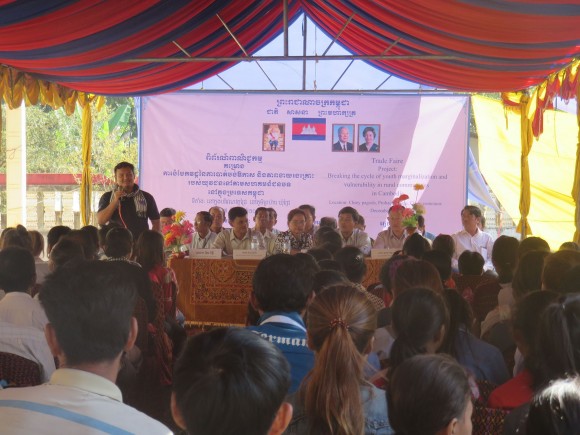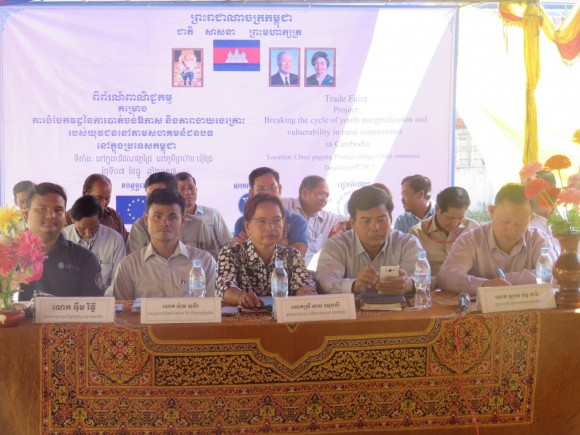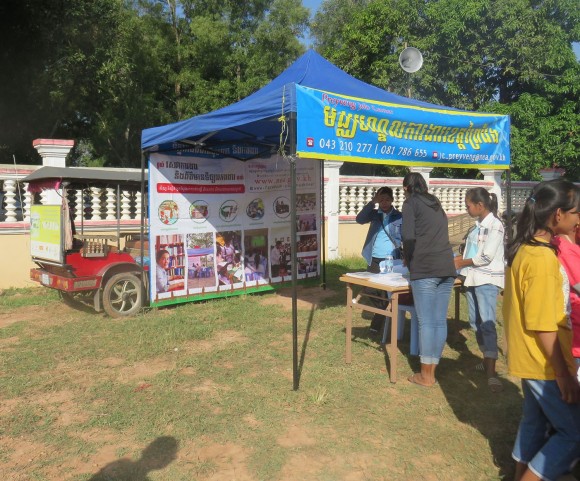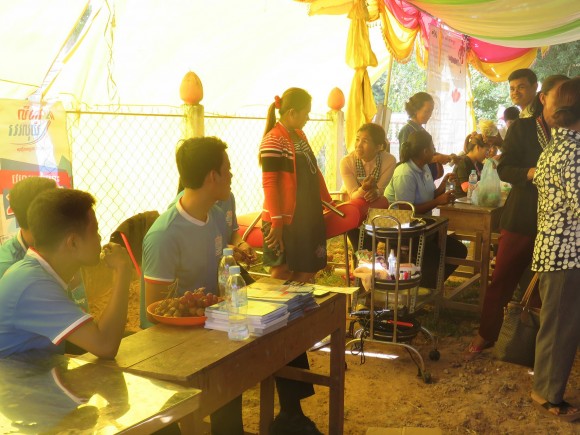Matching market demand in Cambodia
On Thursday 7th December, ACTED and local partner Khmer Youth Association (KYA) held a job fair at Chrey Commune with the National Employment Agency (NEA).
The truck pulls off the main road onto a dirt track frequented by those traveling from remote communes to the city. The road is treacherous and full of potholes created by the unpredictable weather and heavy vehicles. Youths on motorcycles and on top construction trucks drive past us, trying to avoid the deep cracks in the road. This is the way to Chrey Commune, where ACTED and local partner Khmer Youth Association (KYA) have organised a job fair for the current and potential Community Learning Centre (CLC) students.
Up the front, the community hears from those involved in the project. They speak of the importance the CLCs have in creating a sustainable future for youth, especially those who have dropped out of school. Hoy Sitha, the deputy director from the Department of Labour and Vocational Training, speaks about the employment opportunities and about working regulations when migrating to another country. Although he stressed the importance of finding work close by, it is still important to educate about working regulations elsewhere. The Ministry of Labour and Vocational Training works closely with NEA to ensure the private sector companies who are present at the job fair have complied with labour laws.
ACTED Project Manager Rithy, Lay Chandara from KYA and Meas Chhunly the Deputy Governor of Svan Antor District also present speeches about the important work involved in creating the CLCs, and their significance to breaking the cycle of youth marginalisation in Prey Veng.
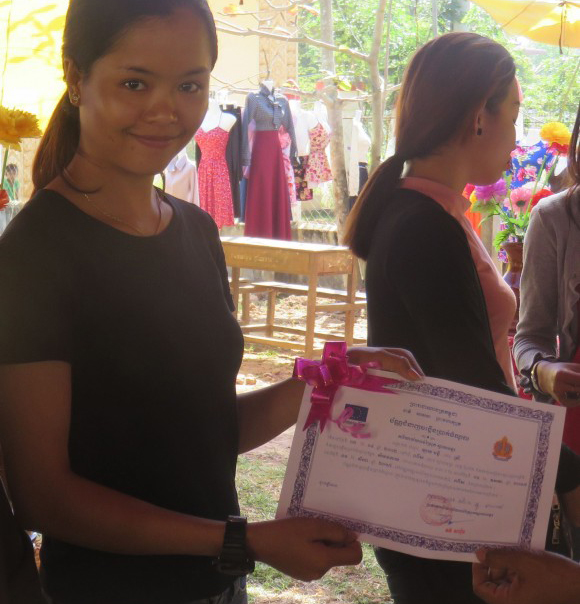
The NEA regional job office tent is a way for graduates and potential students to see what jobs are available to them, and to sign up to their job centre. After the job fair, the best candidates will be chosen and matched with private sector companies. Students gather around, eager to hear more about what doors their newfound skills have opened for them.
Tables of employers and demonstrations of CLC training courses line the side of the tent. Representatives from LY Hour (a money transfer company) sit enticing potential employees to join their team.
At the QMI garment factory table, a potential new employee takes a simple test. She has to be able to write her name, as well as take a series of colour blind tests in order to make it onto the register.
The tables from the CLC students are a hub of activity. Beautifully crafted garments created by the sewing class are on display, along with smiling students demonstrating their newfound skills. EUAV Jessica and ACTED Project Manager Rithy join the excited crowd, the slow hum of the machine taking up the attention of onlookers.
The sewing class stall also showcases the social enterprise aspect of the CLC, where members of the community can buy the garments created by the students. While the social enterprise enables the CLCs to become financially self-sufficient, it also increases students’ confidence and empowers them beyond the training courses.

Members of the community can also treat themselves to a new hairstyle from the students of the beauty salon classes, who proudly displayed their skills creating intricate braids and the products they learn with. Rithy and Jessica learn about the different skills the students study in beauty salon courses, including dying and cutting hair and nailcare.

The materials from the motorbike repair class are also on display, where potential students can see the wide range of tools and knowledge they will gain from studying at the CLC.

The CLCs can be seen as fundamental to generating inner growth as well as financial stability. With the help from the NEA, the courses can be adapted to the unique needs of the community to contribute to the local economy instead of losing youth to urban areas and neighbouring countries. The CLCs aim to break the negative poverty cycle by empowering youth to realise their potential with lifelong skills to gain meaningful employment.
